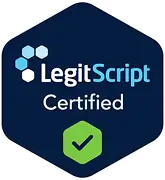The keys are lost again. Your child needs a signed permission slip. You cannot find it. A mental checklist of tasks feels like a swarm of bees. These moments are common for a parent with ADHD. They are not just occasional frustrations. They are the relentless drumbeat of daily life.
What It Feels Like to Parent with ADHD
Parenting is a demanding job. ADHD adds an extra layer of difficulty. You must battle your own brain's wiring. You also manage the chaos of raising children. You might feel a persistent internal restlessness. This feeling can occur even when you are sitting still. Staying organized can feel impossible. The volume of daily responsibilities can become overwhelming. This situation can lead to significant stress. It can also create a feeling of burnout. This burnout is hard to explain to others.
If that experience sounds familiar, know one crucial thing: you are far from alone. Recent data from the Centers for Disease Control and Prevention (CDC) reveal that an estimated 15.5 million adults in the United States have a current ADHD diagnosis. That's about 6% of the adult population. What's more, over half of these individuals receive their diagnosis in adulthood, after the age of 18.
This statistic tells a profound story. Millions of parents have raised families with this challenge. They did so without understanding how their own minds work. Their struggles were not seen as symptoms. These struggles included forgetfulness, disorganization, or emotional intensity. Instead, parents internalized these issues as personal failings. They might think, "I'm a bad parent," or "I'm just lazy." This foundation of self-blame depletes emotional resources. These resources are necessary for patient parenting. The path to becoming a calmer parent starts with a new perspective. It begins with how you see yourself.
Why Your Brain Makes Parenting Feel Harder
You can change your approach to parenting. It helps to understand what is happening in your brain. ADHD is not a character flaw. It is a condition that affects the brain’s executive functions. Executive functions are like a management team in your brain. This team is responsible for planning and organizing. It also manages time and controls impulses. A person with ADHD has a management team with extra challenges.
We can connect ADHD symptoms to parenting hurdles.
- Inattention: Inattention is not just daydreaming. It is the struggle to sustain focus. This struggle happens with tasks that are not highly stimulating. In parenting, this means you might have difficulty with chores. You might forget to pack a lunch. You might miss a doctor's appointment. You might also zone out during a conversation with your child.
- Hyperactivity: Hyperactivity in adults feels like an intense internal restlessness. It is not always running and climbing. It is the inability to relax when the kids are asleep. It can be constant fidgeting. It can also be a tendency to talk too much. This can overwhelm a child who needs a calm presence.
- Impulsivity: Impulsivity is the tendency to act without thinking. A parent might blurt out a frustrated comment. They might interrupt their child. They might also struggle with consistent discipline. This happens because they react differently each time.
Every parenting duty requires a heavy lift from your executive functions. A neurotypical brain performs many of these actions automatically. An ADHD brain requires conscious, focused effort for each action. Packing a school bag is not a simple chore. It is a multi-step project. It requires sequencing and working memory. It also involves fighting off distractions.
This constant mental work creates a "parenting performance tax." This tax drains your cognitive resources much faster. This explains why you can feel completely exhausted. You might feel this way even if you have not accomplished much. The goal is not to find more willpower. The goal is to find smarter ways to reduce this cognitive tax.
First, Build a Foundation for a Calmer You
You must stabilize your own foundation first. Then you can implement new parenting strategies. Self-care is not a luxury for a parent with ADHD. It is a critical part of the management plan.
Fulfill Your Brain's Most Basic Needs
Your brain works best when its basic needs are met. The most powerful interventions for ADHD are often the most fundamental.
- Prioritize Sleep: You should get 7 to 9 hours of sleep each night. Sleep directly impacts your ability to focus. It also helps you manage emotions and control impulses.
- Fuel Your Body: You should eat regular, healthy meals. Meals with protein can help stabilize your energy and mood. You should not skip meals. Skipping meals can worsen inattention and irritability.
- Move Your Body: Regular exercise is a very effective strategy. It helps manage ADHD symptoms. Exercise can reduce restlessness. It can also improve focus and boost your mood. You do not need to run a marathon. A brisk walk or a dance party with your kids is enough.
How You Can Move from Self-Blame to Self-Compassion
The most important shift is an internal one. You may have criticized yourself for years. It is time to let that go. ADHD is a neurological condition. It is often inherited. It is not a personal failure.
Self-compassion means you acknowledge self-criticism. You should treat yourself with kindness. This is the same kindness you would offer a friend. You must understand that your brain is different. It is not defective. A community of other neurodivergent parents can be transformative. This community helps you feel understood. It also helps you feel less alone.
How Professional Support Can Make a Difference
Managing ADHD is a journey. You do not have to do it alone. You should talk with a healthcare provider. This is an important first step. An effective treatment plan can improve your daily functioning. This plan may include therapy or medication. It could also be a combination of both. Parent training programs are excellent resources. Support groups also offer strategies and community.
How to Design a Life That Supports Your Brain
You can build external systems that support your brain. These systems work best with a strong personal foundation. The goal is not perfection. The goal is to reduce your daily cognitive load. This gives you more energy for your kids.
Use Routines to Put Your Day on Autopilot
Routines are very helpful for an ADHD brain. A predictable schedule reduces daily decisions. This reduction frees up your mental energy.
- Create a Family Schedule: You can use a large whiteboard. A shared digital calendar also works. You should map out the day, week, and month. You should include everything. This includes school drop-offs, meal times, and bedtime routines.
- Be Consistent: Children with ADHD also need structure. You should stick to consistent times for waking up. You should also have consistent times for meals and bed. This consistency creates a predictable rhythm. This rhythm benefits everyone in the house.
Let External Tools Do the Remembering for You
Your working memory is already busy. You can give it a break with external tools. You should get important information out of your head. You should put it into a system you can trust.
- Use a Central Calendar: You can use a physical planner. You can also use a calendar app on your phone. You should put everything in it. This includes appointments, deadlines, and reminders.
- Set Alarms and Reminders: You should use your phone to your advantage. You can set alarms for waking up. You can also set them for transitions. An example is "10 minutes until we leave for school."
- Create a "Launch Pad": You should designate one spot near the door. This spot is for all essential items. These items include keys, your wallet, and your child's backpack. You should get in the habit of putting everything there.
Use Simple Systems to Tame Household Chaos
A cluttered environment can create a cluttered mind. You should focus on simple, sustainable systems.
- Everything Needs a Home: You should assign a specific place for everything. You can use clear storage bins. This lets you see what is inside.
- The One-Touch Rule: You should handle papers like mail immediately. You can file them, act on them, or recycle them. You should not let them form piles.
- Break It Down: You should not tell yourself to "clean the kitchen." You should break the task into tiny steps. These steps could be "load the dishwasher" or "wipe the counter." Completing small tasks provides a sense of accomplishment.
How You Can Master Emotionally Charged Moments
Parenting has many emotionally charged moments. Emotional dysregulation can be a challenge for a parent with ADHD. You can develop the skill to manage your reactions. This is a powerful way to support your child. A parent's calm state helps a child regulate their own nervous system. You model a crucial life skill when you manage your emotions. You also create a more peaceful home.
Learn How to Pause Before You React
Your power lies in the space between a trigger and your reaction. You should try to widen that space.
Use the STOP Skill: This DBT technique is an emergency brake for your emotions.
- Stop: You should freeze. Do not move a muscle.
- Take a step back: You should create distance from the situation. This can be physical or mental distance.
- Observe: You should notice what is happening. Observe your internal state and your surroundings without judgment.
- Proceed mindfully: You should choose your next action with intention.
What to Do When You Need to Cool Down Fast
You sometimes need a quick way to reset your nervous system. The TIPP skills from DBT can help you calm down fast.
- Temperature: You can splash cold water on your face. You can also hold an ice cube. The cold can jolt your system out of high emotion.
- Intense Exercise: You can do 20 jumping jacks. You can also run in place for a minute. This exercise helps burn off anxious energy.
- Paced Breathing: You should breathe in for a count of four. You should breathe out for a count of six. A longer exhale calms your nervous system.
- Paired Muscle Relaxation: You can tense your hand muscles into fists. Do this as you inhale. Then you release them as you exhale.
How You Can Change Unhelpful Thought Patterns
Your thoughts are the fuel for your feelings. Cognitive Behavioral Therapy (CBT) teaches you a new skill. You can learn to challenge unhelpful thought patterns.
- Identify the Thought: You should notice when you have an "all-or-nothing" thought. An example is, "I always mess up bedtime."
- Challenge It: You should ask yourself if the thought is 100% true. For instance, "I do not always mess it up. Last night was okay."
- Change It: You should replace the extreme thought. Use a more balanced and helpful one. For example, "Bedtime can be hard. I can focus on the next step. The next step is reading a book."
How Your ADHD Gives You Parenting Strengths
People often focus on the challenges of ADHD. Your unique brain also has incredible strengths. These strengths can make you a fantastic parent.
- Creativity and Curiosity: Your brain gets easily distracted. This same brain is also capable of incredible creativity. You can invent the most imaginative games. You can also find novel solutions to problems.
- High-Energy Engagement: Your energy and enthusiasm are huge assets. You can keep up with your kids on the playground. You can initiate spontaneous adventures. You can bring fun and excitement to family life.
- Hyperfocus and Deep Connection: You can focus with incredible intensity on things that interest you. You can channel that hyperfocus into your child's passions. You can become an expert on dinosaurs with them. You can spend hours building a Lego city. You can be fully present for your child.
- Profound Empathy: Your empathy is perhaps your greatest strength. You know what it is like to struggle. You know how it feels to be misunderstood. You can offer your child a deep level of understanding. You are uniquely equipped to see their behavior as a struggle. You can parent them from a place of compassion.
How You Can Become a Calmer Parent
You can be a calm and effective parent with ADHD. This goal is not about erasing your symptoms. It is about understanding your brain. You should build a life that supports it. You can start with self-compassion. You should recognize that you are doing your best. Your role is uniquely challenging. You can use structure and routines as a scaffold. This scaffold frees up your mental energy. You should practice your emotional regulation skills. Your calm is a gift to your entire family.



